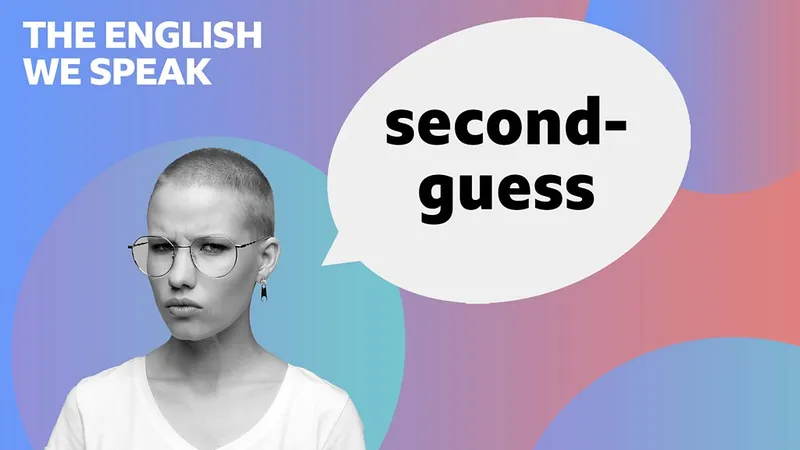Feifei Hello and welcome to The English We Speak, I’m Feifei…
Neil …and me, Neil. Hey Feifei, I have a little guessing game for you.
Feifei Well, I like games, but is this the right time to be playing games? We’re presenting a programme.
Neil This game is about the programme! You need to guess what today’s piece of authentic real English is.
Feifei Do I get any clues?
Neil No!
Feifei Oh, come on, Neil! You want me to second-guess what today’s expression is?
Neil No, just one guess – not a second guess.
Feifei I didn’t mean that, Neil – I said second-guess. When you ‘second-guess’ something, you try to guess in advance what someone will do or what will happen – or in Neil’s case, I have to guess our expression for today. Neil, is ‘second-guess’ the expression you wanted me to guess?
Neil No, but it’s a good one. Could we hear some more examples of it, please?
Feifei Of course. You don’t need to second-guess our examples….
Examples As the weather is so unpredictable, we have to second-guess what customers will be eating in our cafe.
I had to second-guess what my manager was planning and make my own decisions.
There’s no point second-guessing the score, both teams are playing really well.
Feifei This is The English We Speak from BBC Learning English. We’re learning about the phrase ‘second-guess’, which means to guess what someone will do. So, there’s a new expression for you Neil. Do you still want to play your guessing game?
Neil Yes, go on – it’ll be fun.
Feifei Is the answer ‘a wild guess’?
Neil Yes, amazing! Right first time. A wild guess is a guess based on no knowledge. But, how did you know the answer so easily?
Feifei I second-guessed you – but it was an easy guess! Now, guess what?
Neil What?
Feifei It’s the end of the programme. Shall we go and have a coffee?
Neil I guess so!
